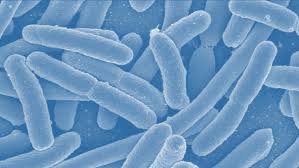THIS SUMMER in Dumfries and Galloway, perhaps partly due to the good weather and people spending more time out and about in the countryside, there have been more cases of diarrhoea and vomiting than would normally be expected.
These have included several cases of E coli gastroenteritis, which can be particularly severe, especially in children and older people.
Dr Nigel Calvert, Consultant in Public Health Medicine, said: “This summer we have seen more cases of diarrhoea than we would normally expect and some of these have been caused by the E coli bug.
“We always look very carefully to see whether we can see any links between cases and haven’t been able to find any common sources.
“It may be that because of the lovely summer we have been having, people are spending more time in the countryside with their families, and this may have led to people picking up these germs”.
“It’s great that people have been out enjoying the summer, but I’d like to offer the following advice to reduce the risk of E coli and other tummy bugs when out and about in the countryside, especially if visiting farms”.
Do Not:
Do not put hands on faces or fingers in mouths while petting animals or walking round fields, farms etc.
Do not eat or drink while touching/petting animals or walking round farms (this includes not eating sweets, crisps or chewing gum).
Do:
Do wash your hands thoroughly with soap and water after you have touched animals, fences or other surfaces in animal areas. Gels and wipes do not remove E coli
Do wash your hands thoroughly with soap and water before eating or drinking.
Do remove and clean boots or shoes that might have become soiled and clean pushchair wheels. Then wash your hands thoroughly with soap and water.
Do supervise children closely to ensure that they wash their hands thoroughly.
Dr Calvert added: “If you or your child develops sickness and diarrhoea, you can get medical advice through the NHS Inform website www.nhsinform.scot or by calling 111.
“If symptoms don’t settle, or you are worried, you should seek medical advice as soon as possible, and especially if there is blood in the diarrhoea as this can be a sign of E coli infection.”






